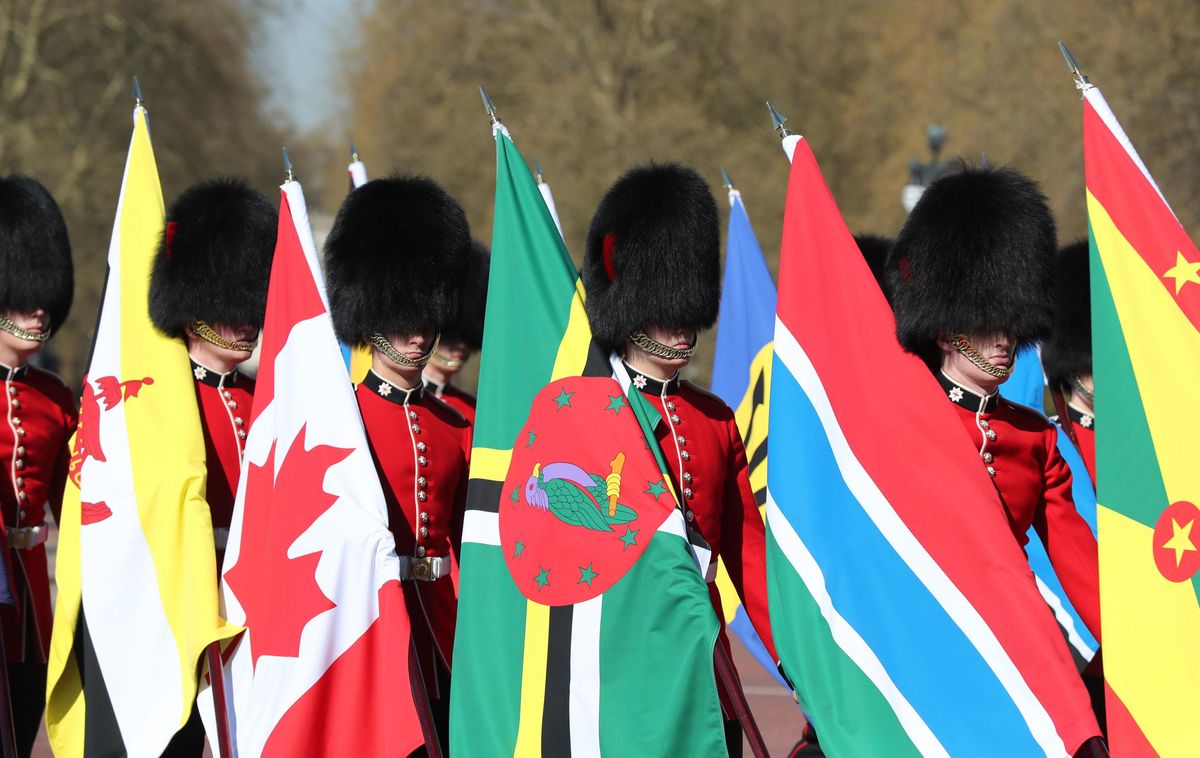She wasn’t just queen of the United Kingdom. The late Elizabeth II was also the leader of the Commonwealth, a voluntary association of 56 independent countries, the majority of which were once part of the British Empire. This includes 14 that continue to have the sovereign as their head of state.
The Commonwealth dates back nearly 100 years and predates the UN. Today it boasts 2.5 billion people, a quarter of the world’s land mass, and a combined GDP of $13.1 trillion in 2021. Formed in the interwar period — when many dominions, colonies, and protectorates were semi-independent or itching for freedom — it aims to offer support to fellow member governments and to improve the well-being of citizens throughout its family of nations.
It holds conferences and summits focused on democracy, cultural exchange, and trade, and manages election monitoring and games. But the Commonwealth has drawn criticism for underperformance and lack of transparency. Its charter pushes for democracy and economic growth, but like many international organizations, it has limited means for enforcement. The Commonwealth has also been accused of punishing some members with suspensions for undemocratic behavior (Nigeria, Fiji, and Pakistan) while overlooking others (Brunei).
India set the tone for the modern Commonwealth. Upon gaining independence in 1947, it made its position clear: it would maintain an affiliation with Great Britain but not fealty to the Crown and demanded independent status as a republic. Many others followed Delhi’s lead, while Australia, Canada, and New Zealand as well as much of the Caribbean chose to retain Elizabeth as their sovereign – a symbolic gesture in which the queen didn’t have much of a role beyond appearing on bank notes.
Leaving the Commonwealth is not unprecedented. In 2021, Barbados politely removed the queen as its head of state, withdrawing from the Commonwealth. Zimbabwe also withdrew in 2003 after a long suspension related to Robert Mugabe’s unruly years, followed by the Gambia in 2013, which later rejoined. Pakistan left in protest in 1972 after Commonwealth countries accepted the secession of East Pakistan into Bangladesh, but it rejoined with the return of democracy in 1989.
Leaders throughout the Commonwealth this week have paid tribute to the queen and to her dedication. But her demise has triggered questions in Australia about becoming a republic. Republican murmurings are also present in Canada, despite PM Justin Trudeau’s affectionate tribute to the queen: “She was one of my favorite people in the world.”
With the queen’s passing, King Charles III becomes the next leader of the Commonwealth. The role isn’t hereditary, but Commonwealth leaders agreed to his leadership before the queen’s death.
While much of the focus today is on the queen’s service over the last 70 years, the future role of the Commonwealth remains an open question. If the last summit this summer and the subsequent debates about the group’s colonial legacy is any indication, the Commonwealth could become yet another avenue in which the monarchy’s place in the modern order is debated.
King Charles III, in short, has his work cut out for him to maintain his mother’s beloved Commonwealth.






